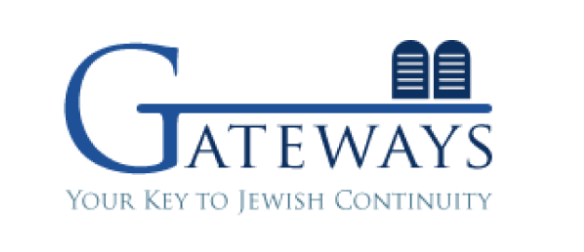Child ID Theft: Victim Tells His Story, Hoping to Help Others Avoid Woes
By Roxana Orellana
The Salt Lake Tribune
Article Last Updated: 10/16/2007 06:47:44 AM MDT
Zach Friesen, a 21-year-old college student from... (Francisco Kjolseth/The Salt Lake Tribune )«1» Zach Friesen first learned he owed money for a $40,000 houseboat when he turned 17 and applied for a job and a school loan.
Certainly he had never bought a houseboat.
Someone had stolen his identity when he was 7 and used it to get a loan. He's off the hook for the debt, but his credit remains damaged.
"I thought 'There's got to be something I can do as a victim to help people,'" he said.
Now 21 and a senior at the University of Colorado, Friesen has spent the past three years working for Qwest Communications' Incredible Internet Program talking to teens, parents, legislators and anyone else who will listen about teen identity theft.
On Monday he stopped at Skyline High School in Millcreek to caution students about the dangers of sharing too much information.
"High school students specifically are the target of identity theft," Friesen said. "They have clean lines of credit, so thieves know how much they are going to get when they target a child."
In addition, teens too often are willing to give out their information and don't check records such as credit reports that may turn up fraudulent activity.
In his case, Friesen said the thief had 10 years to get away with the crime and to this day, no one knows who stole his identity. When Friesen applied for his loan, the bank informed him of the debt and what the money had been used for.
He said teens and their parents can start by checking credit reports. Friesen said he is working with companies to try to get the expense of credit reports reduced for teens and for parents with multiple children.
Qwest started the Incredible Internet Program to offer families an online resource for smarter and safer Internet surfing, spokeswoman Katie Lessman said. The program seeks to educate teens before they learn the hard way that they're vulnerable to identity theft.
The company hired Friesen because he had a personal experience with identity theft and can relate what happened to him and other teens.
"It really opens some people's mind about identity theft," Robert Wilcox, a senior, said of Friesen's warning. "It's helpful. Most of the time we don't know what we're putting on the Internet."
Friesen said teens typically react with shock to his presentation. "I really want students to walk away with an understanding of what identity theft is and what to do in the event that it happens," Friesen said.
Protect your identity
Teens are particularly vulnerable to identity theft because they too often provide personal information. Here are some tips for protecting against theft and fraud:
* Never provide personal information to strangers. Do not post your photo online or post a public profile with data such as age, gender, hobbies or interests.
* Be sure you know who is receiving the instant messages you send.
* If something inappropriate happens online, report it immediately to www.cybertipline.com.
* Always be alert to Internet scams.
* To protect yourself and your computer, use software for spyware, spam and viruses.
* Parents should know their children's passwords and screen names. They also should learn Internet lingo such as POS: parent over shoulder.
Source: www.Incredibleinternet.com
Zach's message is very true. People, teens in this case, with clear credit reports are particularly vulnerable to fraud. Legally, anyone under 18 years of age cannot receive credit unless an adult co-signs the application. Why? Because minors are not legal signatories to contracts. A minor cannot be held liable in contract law and must be backed by someone who can be. The credit bureaus do not intentionally have files for minors as a result.
Social Security Numbers not associated with a consumer credit file leave the holder of that number vulnerable to fraud when a perpetrator fakes a name and date of birth to apply to credit thereby associating the wrong person with the SSN with the credit bureaus. This starts a trail of credit fraud perpetrated against an unknowing victim and which ends in a devastated credit standing.
Unfortunately, minors are most often victimized by parents or other family members. This is indeed tragic. In order to correct most credit reporting problems or to dispute fraudulent accounts with creditors, a police report may be required. The minor, upon reaching legal age and discovering the fraud must make a choice between starting life as an adult with bad credit or filing a police report incriminating his/her parents. That is, of course if the source of the fraud is known.
While advocating consumer credit education is a popular approach to reducing the likelihood of identity theft, educating minors means educating parents first. However, parent predators only become better predators with increased credit knowledge.
For teens, while credit education is important, privacy education is more important. Teens need to learn self-defense in general and spend a specific amount of time learning to be identity shrewd. Social websites have attracted a bit of attention as of late being an avenue to uncover information about a consumer for criminal purposes. Identity shrewdness training should take into account not only Internet behavior but document retaining and usage training. Teens do not to share with friends their SSNs, have easy access to original documentation (SS Cards, certified birth certificates, forms displaying their PII, etc.), or need more than a name and id number issued by their school.
Teenage computer users often have access to an adult's credit card number for internet activities. One has to wonder how many credit card accounts are made subject to fraud as a result. Teens and adults who routinely buy or order goods or services online should have a separate credit card (not a debit card) which is used only online. Using multiple credit cards online delays discovery of fraud and complicates the dispute unnecessarily.
More on identity theft at a later date.
Good reference
























































0 comments:
Post a Comment